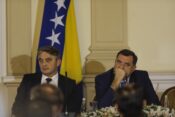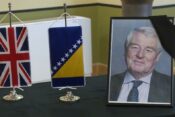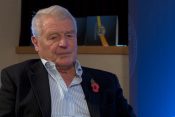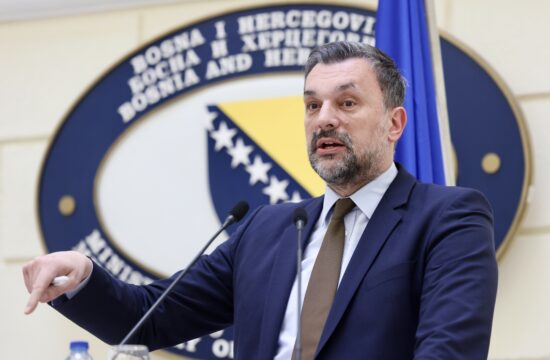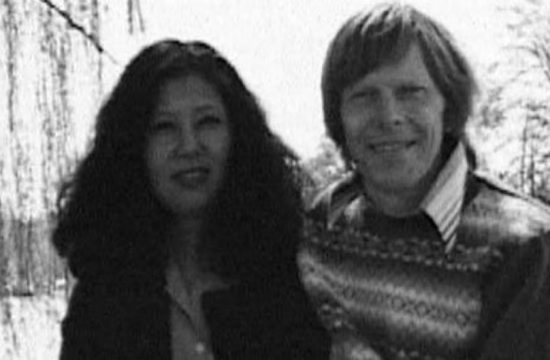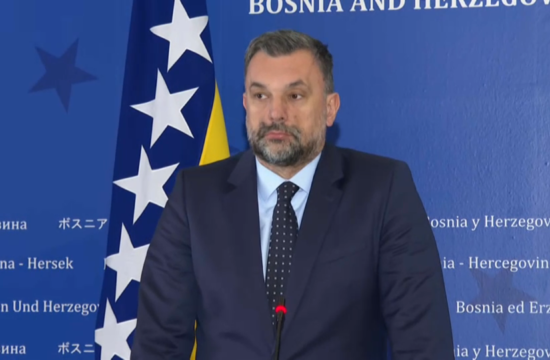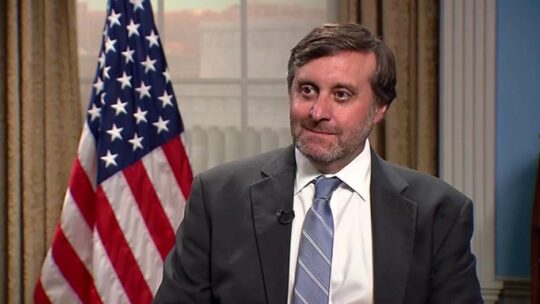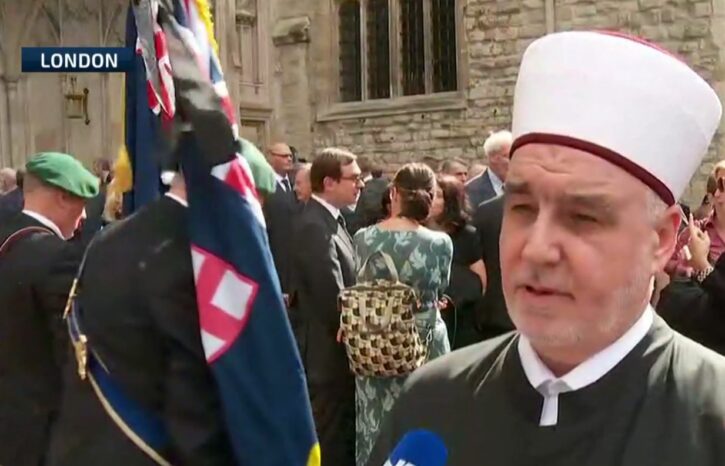
Bosnia’s former international administrator, Jeremy John Durham (Paddy) Ashdown, has done a lot for the country and its citizens should always remember him and continue on his path, the head of Bosnia’s Islamic Community said on Tuesday at a service of thanksgiving for the late British diplomat in London, UK.
While serving as High Representative in Bosnia and Herzegovina from 2002 until 2006, Lord Paddy Ashdown oversaw the civilian implementation of the 1995 Dayton Peace Agreement which ended the war.
He died in late September 2018.
The head of Bosnia’s Islamic Community, Husein Kavazovic, told N1 that Bosnian citizens have a debt to Paddy Ashdown for what he did for the country.
“This is a sad day for us. We remember a man who left a deep mark in our lives,” Kavazovic said.
“In his service to Bosnia and Herzegovina, he helped the country implement several reforms. But most importantly, Lord Ashdown was a man who was uncompromising when it comes to the persecution of war criminals,” the religious leader stressed, adding that had Ashdown not been so decisive, many war criminals would still be free today.
Bosnia managed to establish a single army, intelligence agency, tax authority and reform the judiciary during Ashdown’s term.
“He built up Bosnia and Herzegovina, it is our obligation to follow that path in the best possible way. He serves as a great example for us. Courageous people can achieve results,” Kavazovic said.
“We need courageous people, we need to rid ourselves of fear. Fear blocks us and that is exactly what he was trying to tell us. That we shouldn’t be scared, that we should build up our country – a democratic, free, civic one, one that will suit all of its citizens,” he told N1.
The Croat member of Bosnia’s tripartite Presidency, Zeljko Komsic, also attended the service in London and said that Bosnia could learn a lot from it.
“You can see that people value what he did for Great Britain, as an intelligence officer, as a politician,” Komsic said.
“Maybe we could learn something in Bosnia and Herzegovina, as this morning I saw all the comments regarding the commemoration for Lord Ashdown – one becomes a little bit uncomfortable about it,” he said, referring to comments Bosnia’s Serb Presidency member made.
Hardline right-wing Bosnian Serb leader Milorad Dodik said earlier on Tuesday that Ashdown will be remembered as “an international offender who violated all positive domestic and international legal acts during his term.”
Dodik, who has for years been advocating for the secession of the mostly Bosnian Serb part of the country, Republika Srpska (RS), has been very critical of Ashdown because of his activities as High Representative in Bosnia.
During his term, Ashdown made use of the special “Bonn powers” extensively, which enabled him to impose or annul laws and fire public officials as high as presidents who violate the 1995 Dayton Peace Agreement, which also contains Bosnia’s Constitution.
The diplomat also helped in the 1995 Srebrenica massacre being declared as an act of genocide. Bosnian Serb leadership has generally been opposed to Asdown’s activities.
But Komsic said that regardless of one’s political views, Ashdown deserves thanks.
“There were representatives of four different political options and they all spoke of him as a man who did great things for Bosnia and Herzegovina. I had the opportunity to talk to him, even to have a political confrontation with him,” Komsic said.
The current High Representative in Bosnia, Austrian diplomat Valentin Inzko, said he came to pay his respects to his “friend.”
Inzko reminded that Ashdown was one of the three former High Representatives who signed a joint letter to the EU, warning of Croatia “meddling” in Bosnia’s internal affairs only days before his death.
“He thought about Bosnia and Herzegovina and how to help it until his last breath,” Inzko said.

